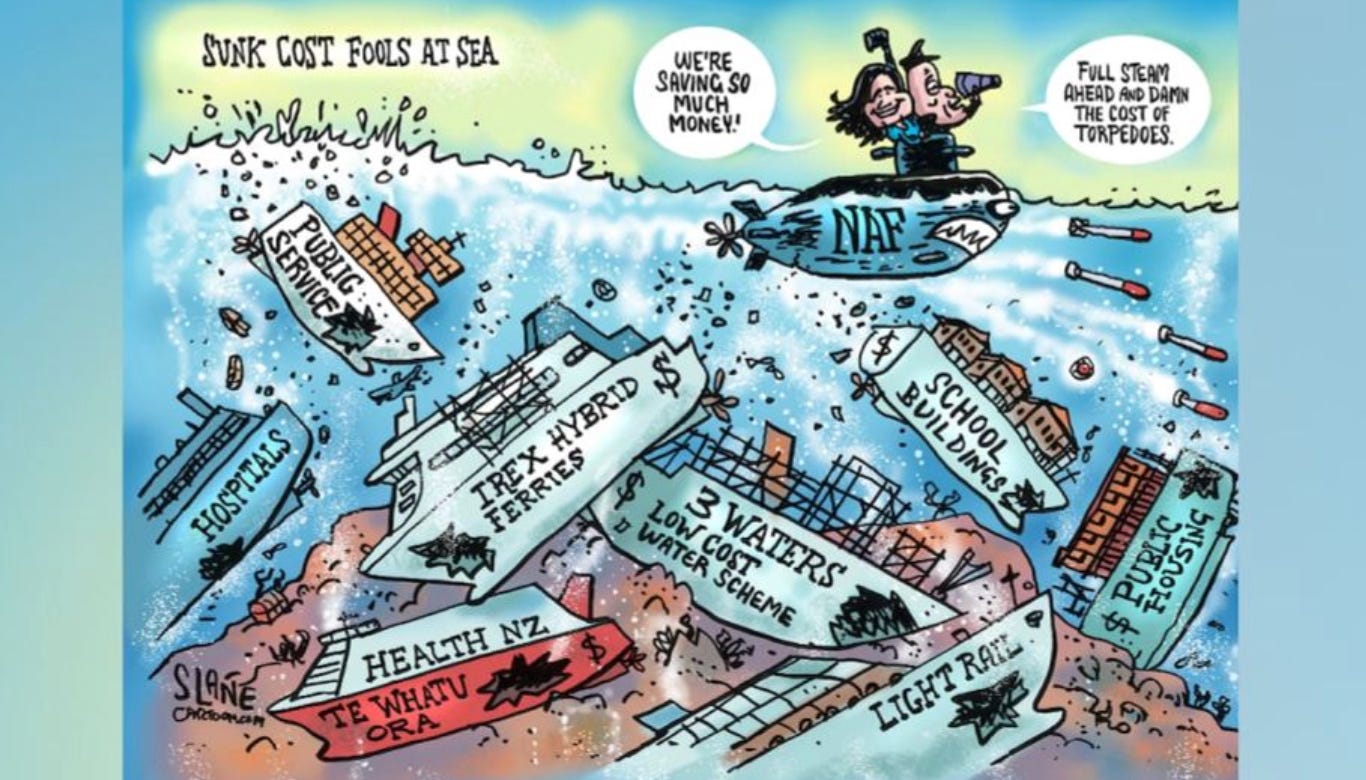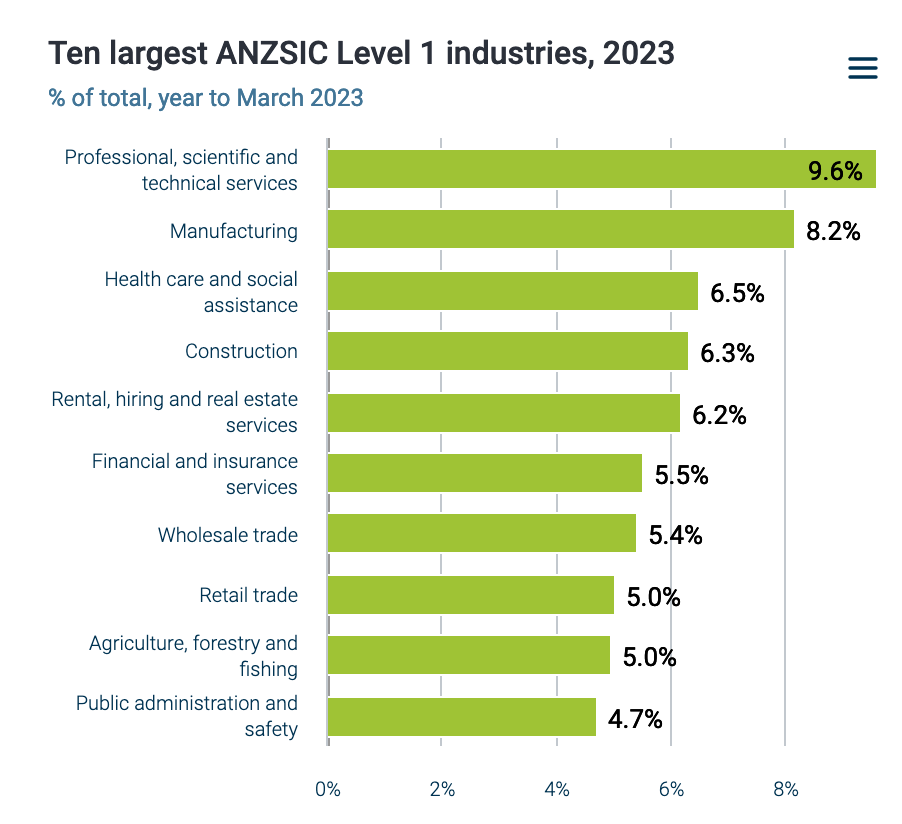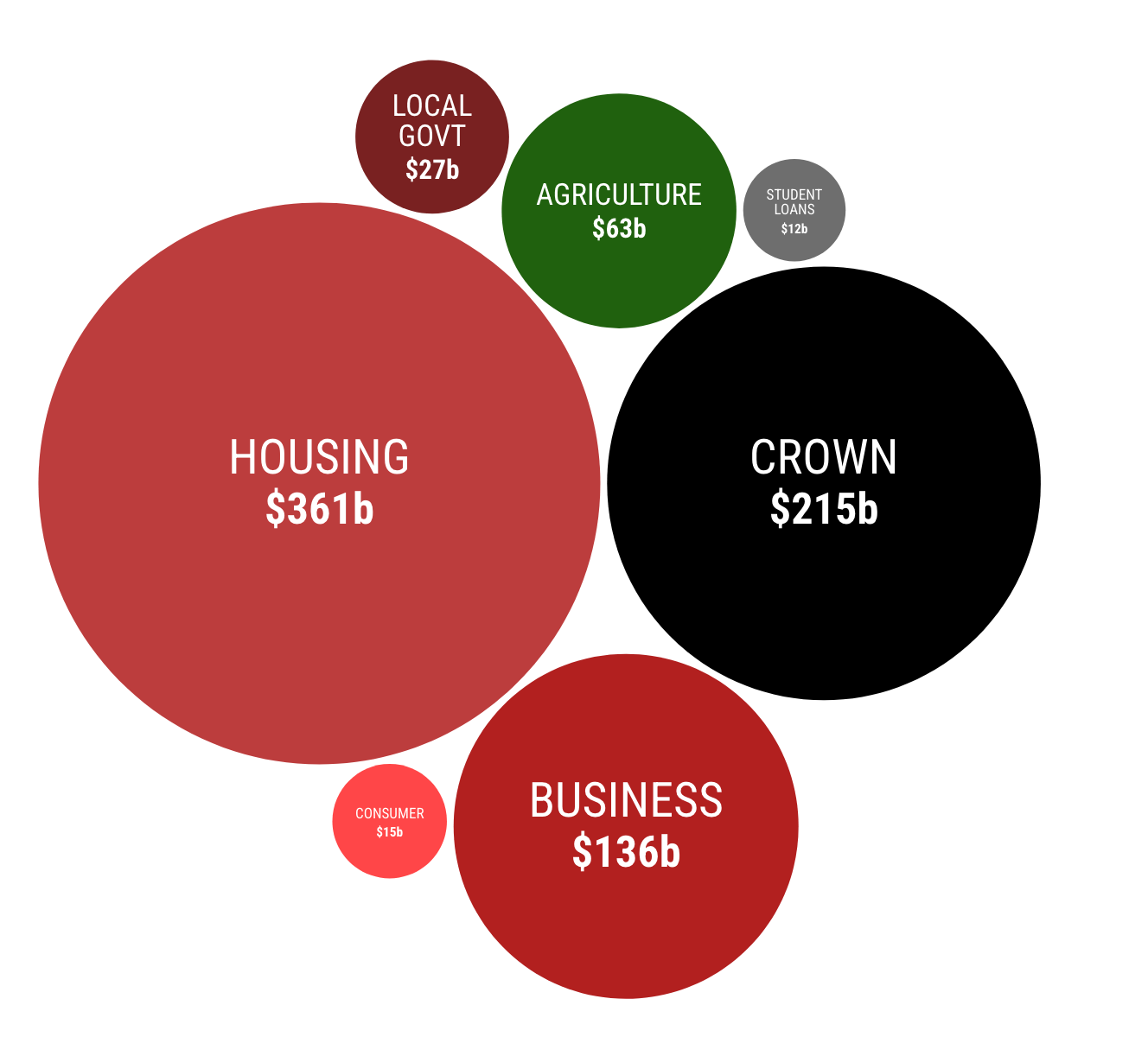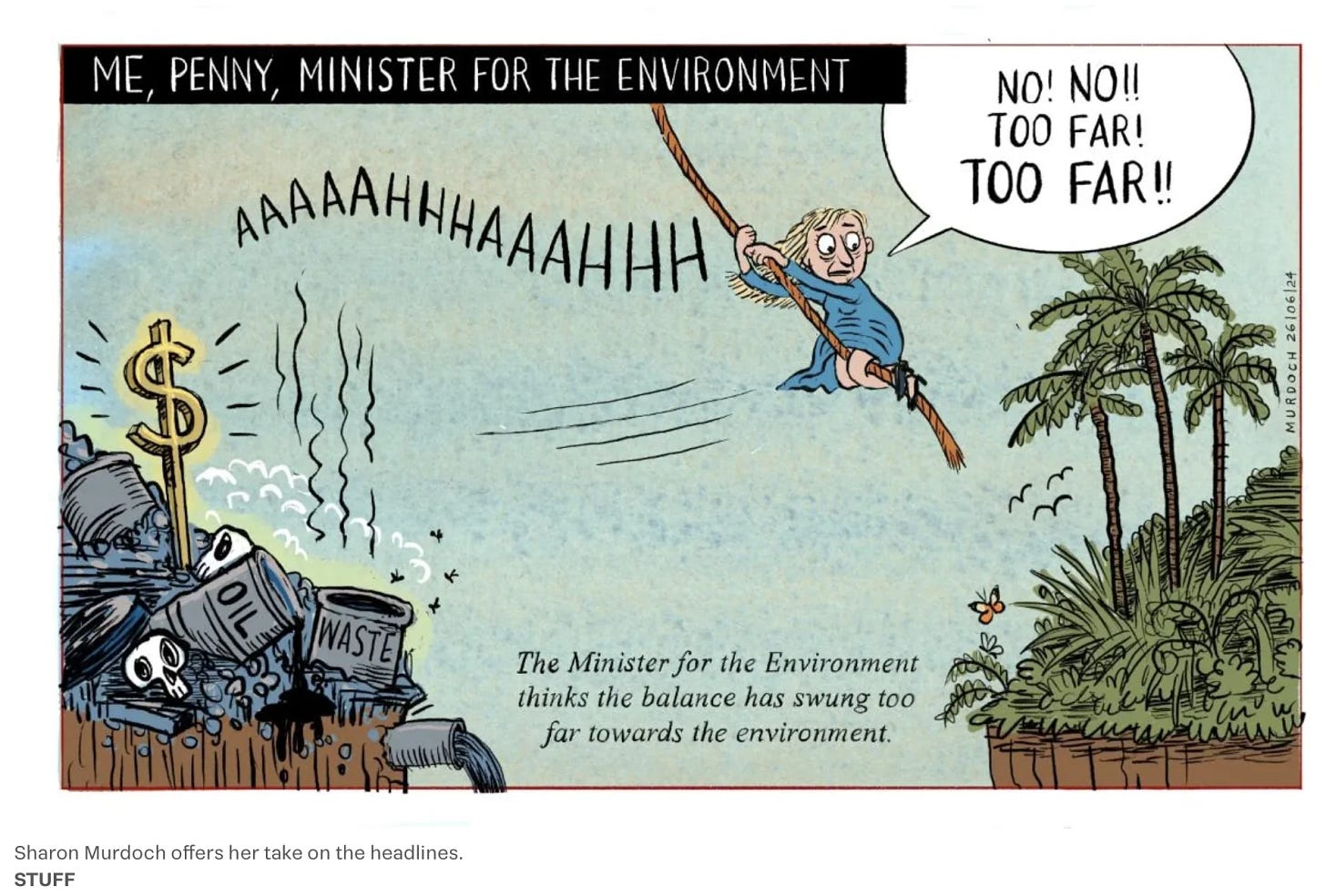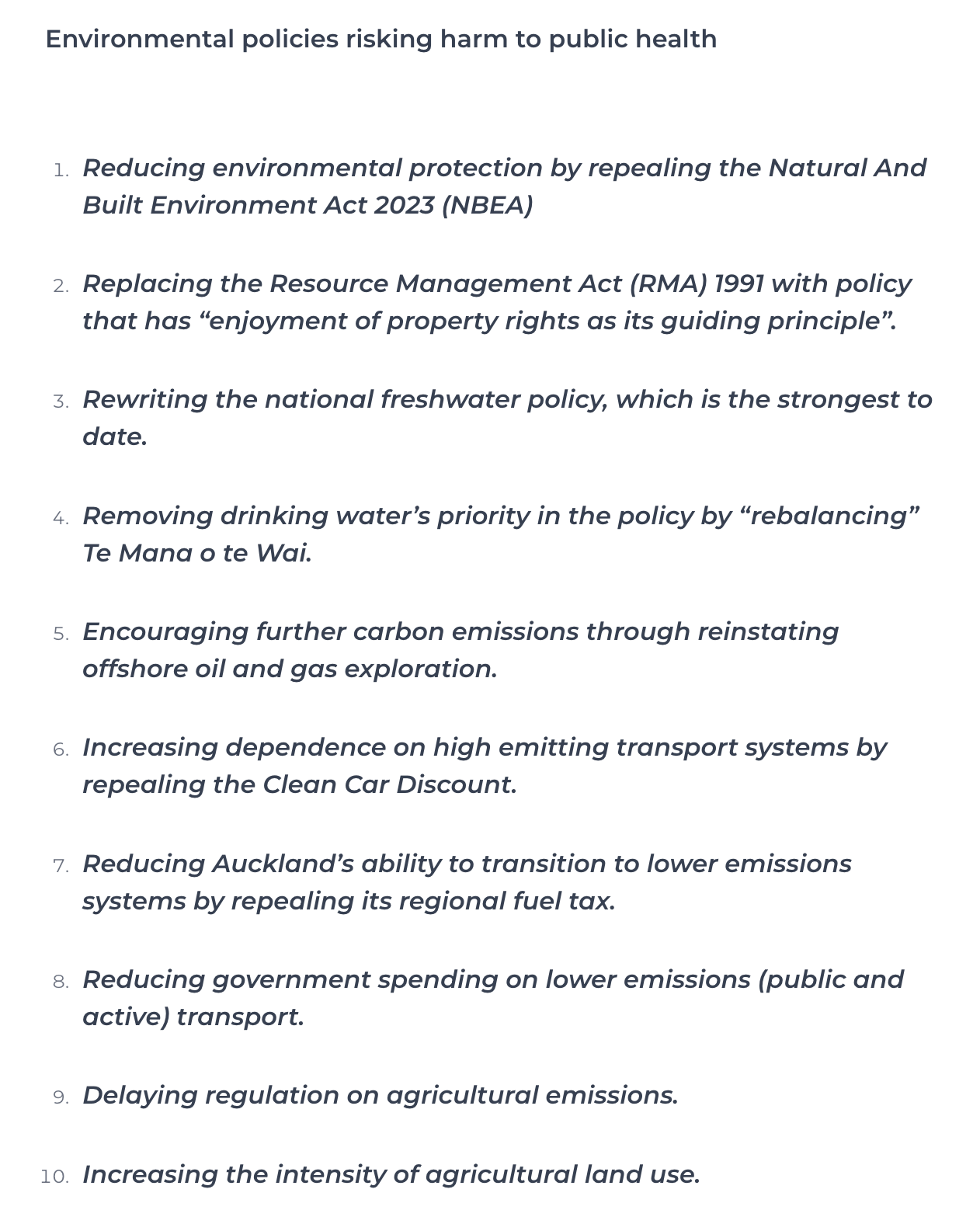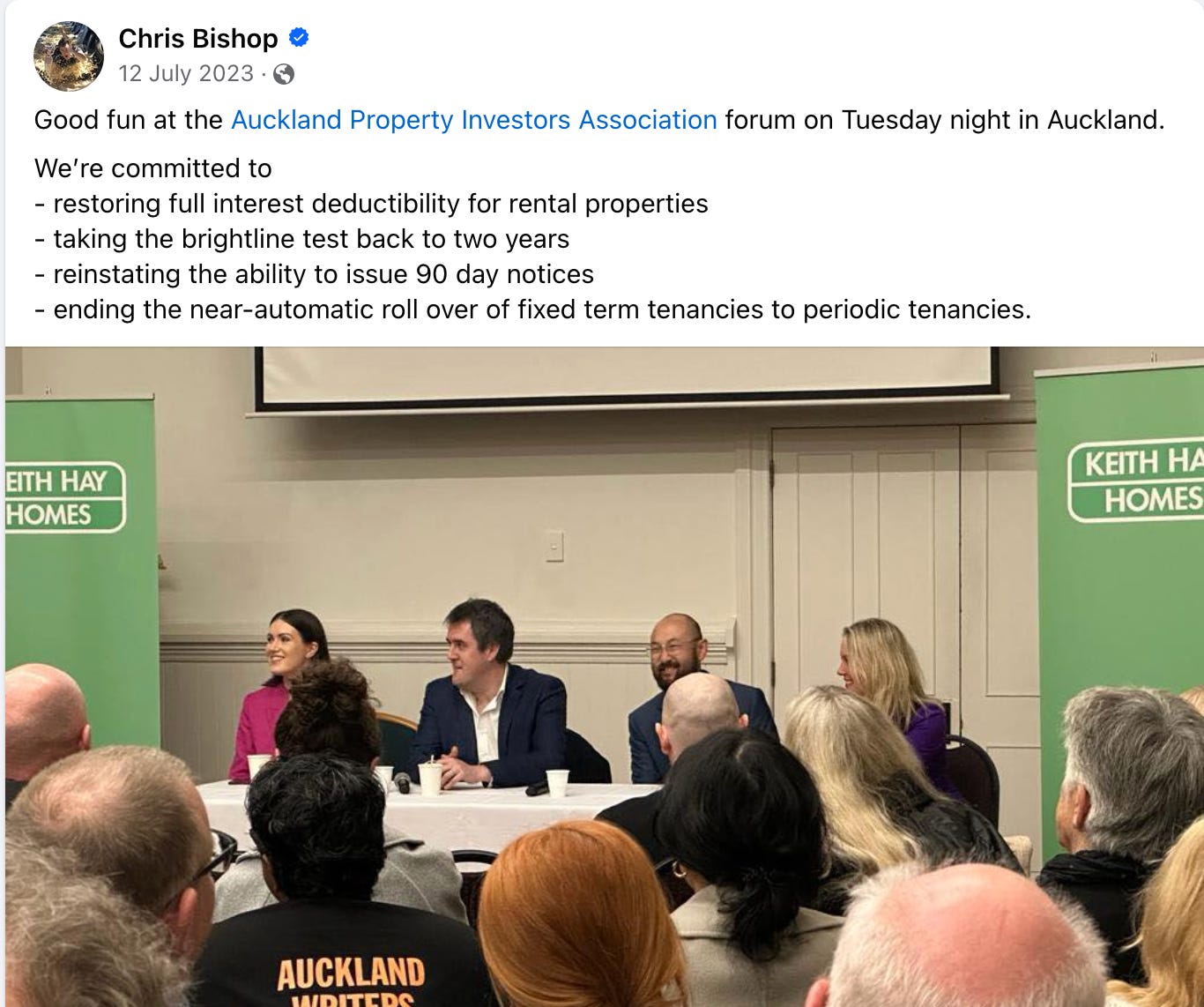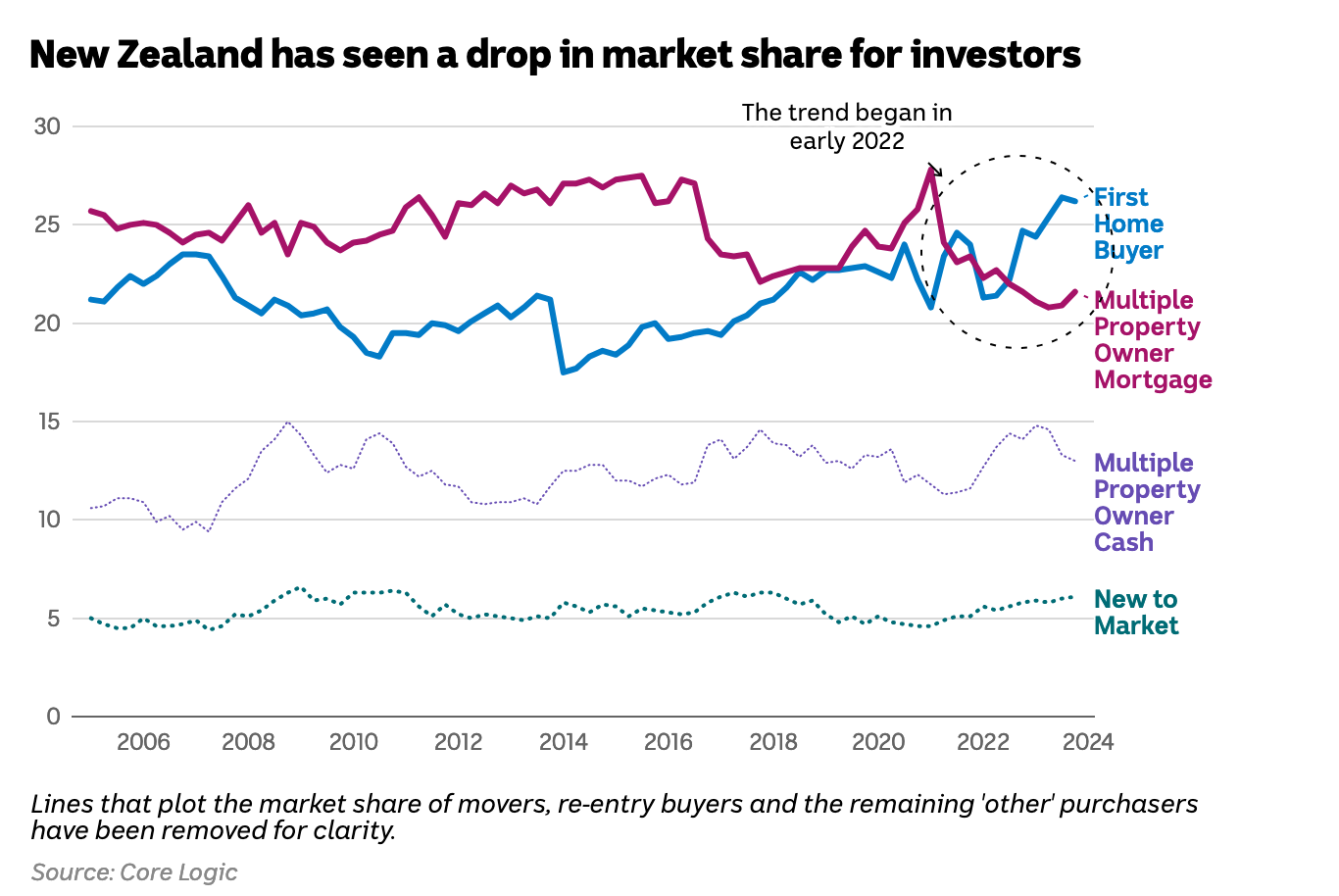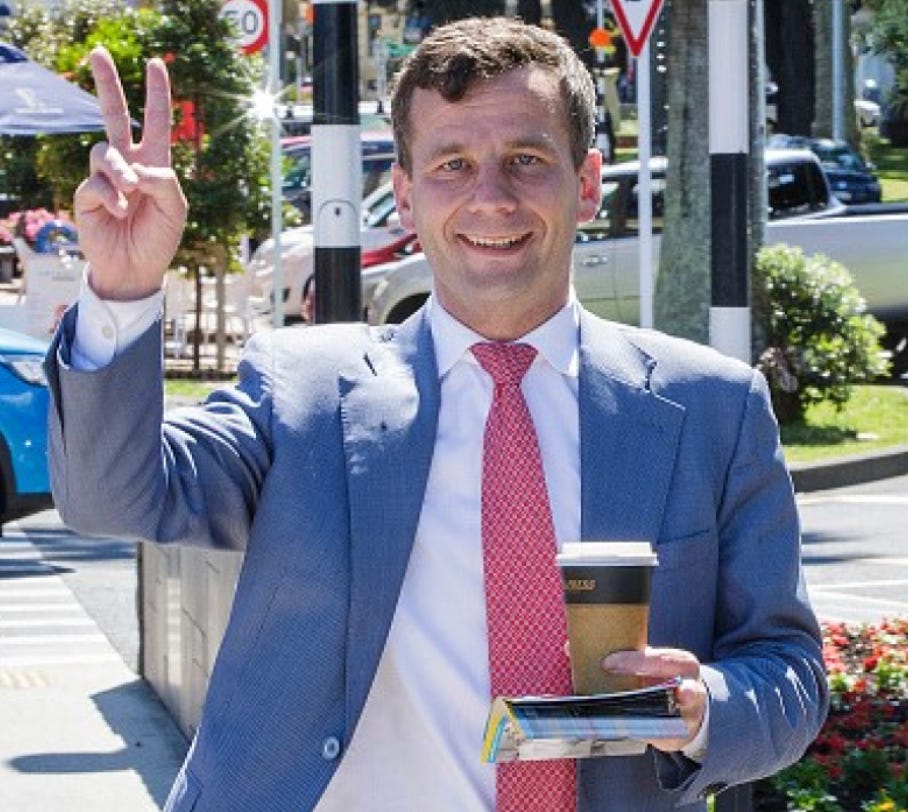Fix the Economy, Stupid + What the Godfather of ACT Told ACT To Do
I'm Calling Them The Anti-Productivity Coalition Today
The Goverment That’s Pushing NZ Backwards
I’ve been musing about a topic and its name is “The Anti-Productivity Coalition.”
The degree and scope of contradictory policies by Luxon’s government is quite baffling, and it’s not only the economy.
Example: We are strong on crime - so -
Let’s build a mega prison that increases isolation & hardens criminals, run $5.1mn for 10 youths boot camps that experts agree are a failure with more negatives than positives, and stamp down on police morale and experience levels.
That will work right?
And don’t forget paying off the vocal Sunny Kushaul for the bargain price of $3.6mn over two years so he doesn’t reach your nightly news bulletin.
Meanwhile, we’ll ignore the real root causes ‘cos that’s just too hard.
But we’re not above creating more reasons for crime, let’s just say, as one casual example - the constant beat down of the poor, vulnerable, disabled, and Maori, and the Coalition’s general impotence in addressing the cost of living crisis.
But more than that, I feel like they are working hard to drive productivity backwards. And that’s pretty rich for a team that kept bleating about productivity and the economy in opposition.
Are they doing anything in this space?
Let’s say, for example:
Structural reforms
Investments in innovation, science, technology, climate - things that are more forward looking and exciting, that can take advantage of human capital and propel a tiny country forward. We can even take advantage of our place in Asia-Pacific to do so.
Instead, no, we get bets on going back to mining and agriculture - nothing wrong with that by the way, especially around innovation and tech - but not the way they’re doing it i.e. just allowing the industry to pollute freshwater, ignore methane standards, diverting limited resources, energy and time to legislate for and protect them
(BTW again contradictory - you allow pollution, you stack that up onto the healthcare system and our people and our water infrastructure. It’s a live system, and you can’t do things in isolation, stupid.)
There’s lot of superfluous culture wars they are pushing, taking the nation on a merry-go-round of wasted energy, focus and money - especially pertaining to Maori topics as the govt. keeps inventing problems so it can ram its pre-desired outcomes through.
And we saw them taking on more debt, $12bn more, just to give out tax cuts that were eaten up by National’s other increased costs on the other side (prescriptions, higher GP fees, fuel taxes 2027, higher rego costs, taking away entitlements for the disabled and elderly, rates, coming tolls etc) while killing off productive infrastructure.
The sunk costs, courtesy Chris Slane:
It’s all rather unintelligent if we believe their stated aims of getting NZ back on track and generating an, excuse me a moment, “a rock star economy” under National.
Hence the title “The Anti-Productivity Coalition”
Today, let’s look at some tidbits that you may find of interest to give you a sense of it.
Warning: look away if you hate facts and figures, I know it can get boring.
[I’m comparing against different periods so just treat them all as ballpark. The intention is to give you a sense of what we’re looking at, rather than a hard and fast accounting]
NZ’s economy is worth ~$410 bn GDP (2024)
The government’s total tax take is about ~$104 bn (2023)
In 2021, ~2.8% of all tax revenue was from the agricultural sector. We can extrapolate an in-range continuation of that, and possible drop over the last few years, due to natural events i.e. floods etc.
TLDR - not impressive
Agriculture represents ~5% of total GDP (2023) but more interestingly, it’s not really been a strong contributor to GDP for a while
The graph immediately below shows how agriculture has been gradually diminishing in importance - you can play around with the tool yourself (here - Stats NZ)
Agriculture sector is heavily reliant on exporting within our total ~$68bn export industry. 62% of exports are agriculture related.
Mining is an even weaker performer and has been for many years - contributing 1.8% in 2000; 1.2% in 2007 and ~0..8% in 2023 to our GDP
Even arts & recreation, which our PM isn’t a fan of, does better - contributing 1.4% to GDP (2023). In 2017 mining and arts contributed the same - 1.3%.
In total, let’s say, primary industries (fisheries, agri, forestry, mining) contributes about 5-7% of our GDP
Construction is our 4-5th largest industry, producing 6.3% of the real Gross Domestic Product (GDP) (2023)
So guess which industry got rail-roaded pretty hard by the Coalition of Chaos - hint: lots of government cancellations - schools, social houses, hospitals etc.
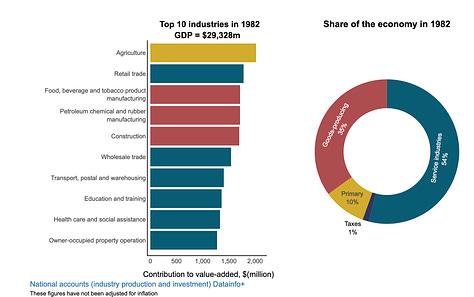
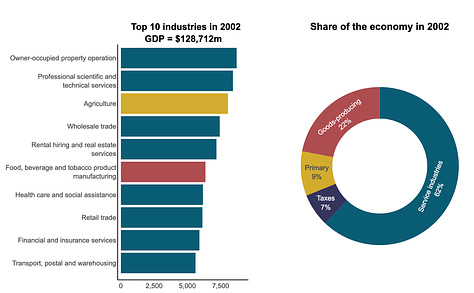
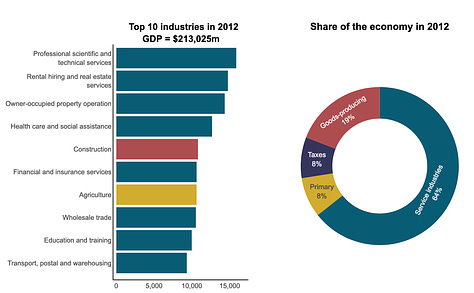
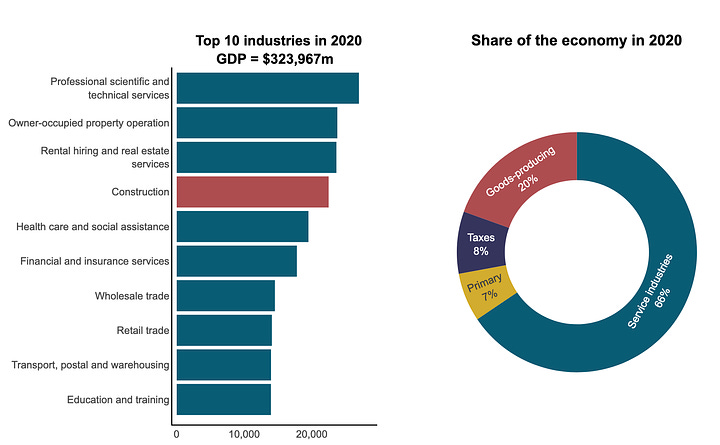
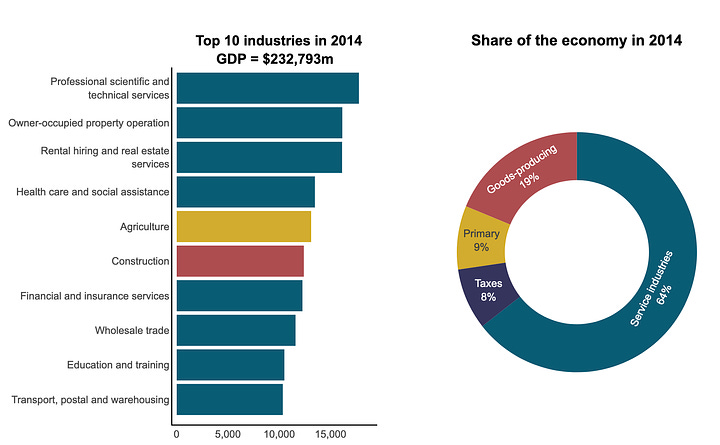
Now, from a debt standpoint - total gross debt stands at $827bn (2024)
44% of all debt is in housing and most of that sits with foreign owned banks
Correspondingly, a large proportion of our wealth (~60%) is tied up in property.
You can understand why politicians get nervous about this harbinger. Who here wants to think about that?
1/3 of property is held by investors, 2/3 are owner occupied
The value of all land and property in NZ stands at ~$1.4 trillion - which I’ll say stands within a recent 3-5 times x GDP range.
I’m not going to do a deep dive analysis other than to say it’s interesting to see the right wing government’s policies largely focus on supporting primary industries incl. mining and propping up property as an investment. Much of what they are doing is pivoting back to undoing and loosening regulations and rules around fisheries, mining and agriculture - so the handcuffs on them around environment and care can be undone.
As the Minister for the Environment Penny Symonds said, NZ swung too far to the environment - in THEIR eyes.
But do they not realise, no-one is going back to the hey-day anymore, especially when those hey-day days are long gone. Take mining as an example.
Mining is fraught with risk, most profits are siphoned overseas, and it carries huge environmental and clean up cost risks. Let alone the fact that we’d likely get 2c on the dollar as royalties.
MORE READING
Ditto with agriculture. There’s nothing wrong with it, and it deserves our respect and care too, but not in the way the government is implementing anti-environment measures to protect that sector (courtesy PHCC)
A few other tidbits:
The policies Ardern put in were starting to decrease the outlook on property as an investment. The proportion of housing debt and wealth isn’t that healthy in the first place, let alone the speculative nature of investors that pushes up prices, and forcing more to rent.
Too bad this government rolled it back and if they believe that that makes sense, good for them but it certainly looked more like an election promise as Bishop/Seymour promised PIAs around the country that they’d be looking after landlords
There are a lot of innovative opportunities for NZ to operate in - climate technology, science, innovation. However, we’ve seen little interest from the government, who have been known to make jokes about “woke” and have slashed budgets in NIWA, Callaghan Innovation, Chief Science Advisors, digital health and climate investment.
Again, everything is fine in that there are always trade offs but so far, all we’ve seen is a lurch backwards, including to industries that aren’t that primary to our “growth” in the first place.
It’s an anti-productivity government if I ever saw one, stupid at each turn, and piling on costs each time it implements seeming donor backed policies without looking at the overall impact, or investing in genuine productivity.
PS Live exports is another example. Besides the cruelty of it, ACT and National have been touting they are saving a $500mn industry. The industry spent $1bn lobbying for its return. ACT quoted the industry as worth $262 million in 2022. And when it was banned, the reports showed: “The ban took effect in April 2023. Live exports had been expected to bring in $310 million in the year before the ban — about 0.5% of the primary sector's export earnings.” It’s likely those numbers aren’t huge so why we’d be so cheap as to hurt animals for 0.5% of a small sector is anyone’s guess.
The Godfather Of ACT Called
A nice person sent this article along. It’s based on the life and story of Alan Gibbs, Godfather of ACT, mega-donor to the party, and a guy who is relieved his legacy will live on with his daughter as Atlas Network’s Chair.
It helped make sense of a lot of what we are seeing Seymour do.
I’ll bring the quotes (emphasis mine)
First of all, the book is written by ACT philosophy aligned Paul Goldsmith.
A journalist covers it:
"And there it was: the greatest coup of my business career, the chance to make serious money," crows Alan Gibbs as he pulls off the sale of the century, taking state-owned enterprise Telecom off the government's hands in 1990. Three years later he and business partner Trevor Farmer get their big payday when they stump up about $200 million for 112 million Telecom shares. They immediately sell 67.5 million shares for $256 million, making a cool $56 million profit. Plus, having bought at $1.81 and sold at $3.80 per share, the balance of their shares is worth about $170 million. An asset sale deal close to heaven…
Gibbs is so enamoured of Austrian neoliberal economist Friedrich Hayek that he has HAYEK as his personalised number plate.
Ah. That makes sense. For those of you who don’t know, the founder of Atlas Network is a UK dude called Antony Fisher. He was given the title of Lord by Margaret Thatcher and was strongly influenced by Hayek -
Fisher sought out Hayek at the London School of Economics (where he taught) and talked about his plans to go into politics. Hayek, however, convinced him that think-tanks were the best medium for effecting political change
History and all.
More on Alan Gibbs and how he directs the ACT party found here (article 2014):
The man regarded as the "godfather" of the Act Party, multimillionaire businessman Alan Gibbs, flew in yesterday to urge the party to think more radically.
He questioned why the state should provide health and education, or even roads….
"I'd privatise all the schools, all the hospitals and all the roads," he told the conference. "We've had a 20-year siesta so I think Act should get out there and shake the market."
He cited the success of Singapore education and health systems which had state and private schools and hospitals but which, he said, all worked to prices.
"We in our arrogance or stupidity have ... obsessively ignored it - we say the state must run the schools.
"What is this crazy fixation, love affair, with the the state running things?"
Caption: “I’m here, Dad!”
Gotta say big Dave is doing well for the Gibbs Vision.
Keep reading with a 7-day free trial
Subscribe to Mountain Tui to keep reading this post and get 7 days of free access to the full post archives.




